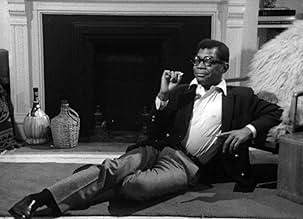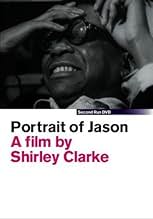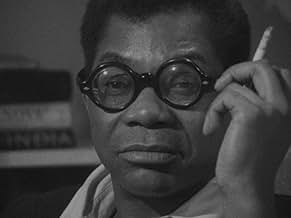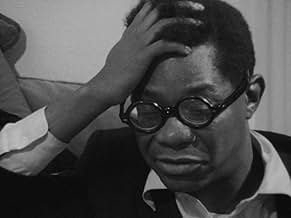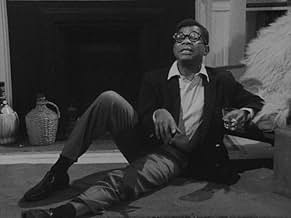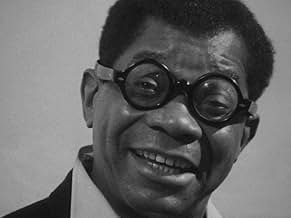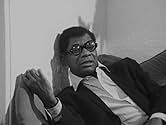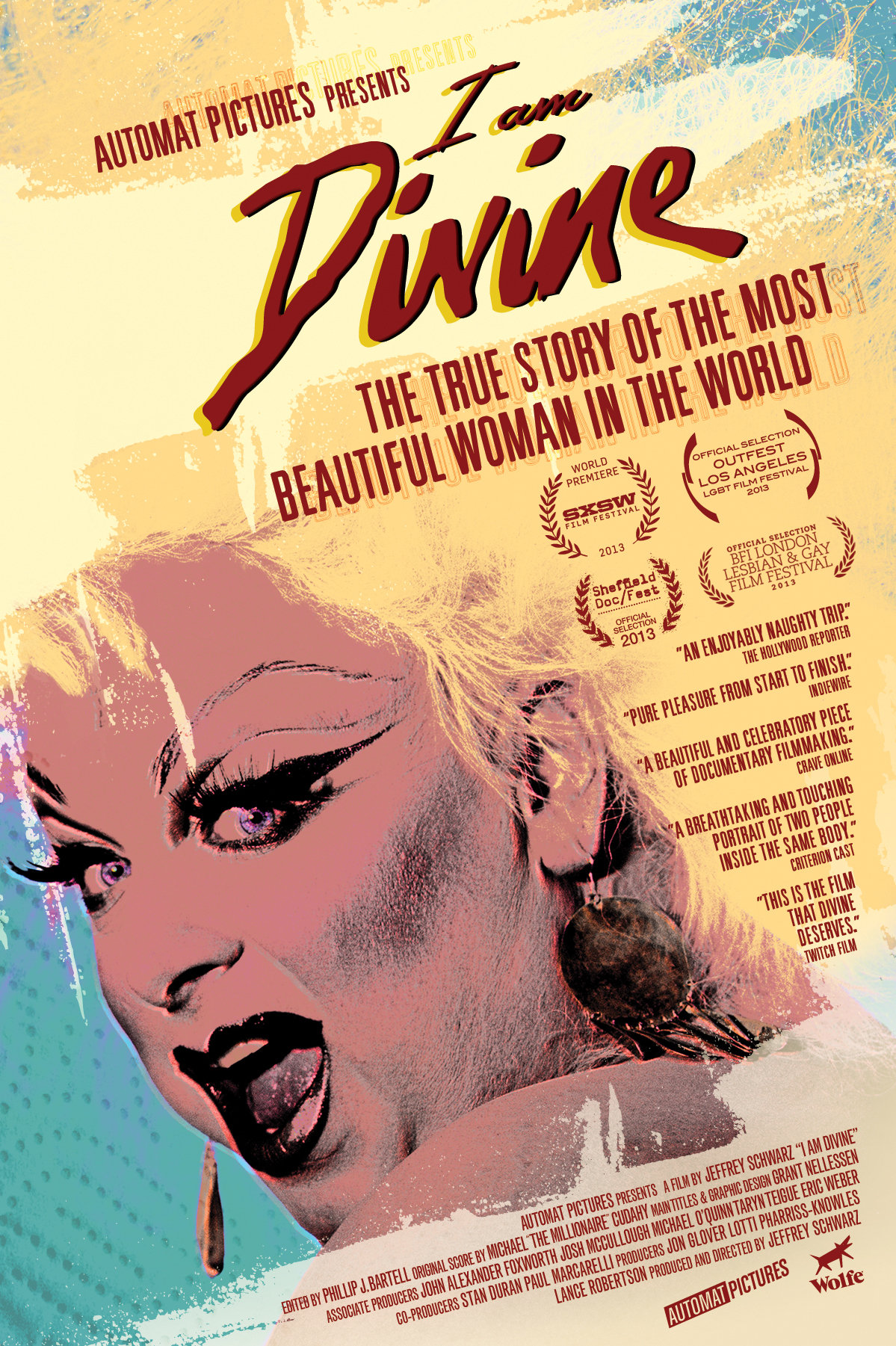IMDb RATING
7.0/10
1.6K
YOUR RATING
Black gay prostitute Jason Holliday is rigorously interviewed on his story and character, revealing nuanced truths about life and art.Black gay prostitute Jason Holliday is rigorously interviewed on his story and character, revealing nuanced truths about life and art.Black gay prostitute Jason Holliday is rigorously interviewed on his story and character, revealing nuanced truths about life and art.
- Director
- Stars
- Awards
- 1 win total
Featured reviews
Another reviewer mentioned that this was the kind of film few people would watch until the end. I found it fascinating as this was probably one of the first surviving filmed attempts to capture true stories of gay life on screen, and not just gay life, but life as an African American gay man who was 42 when this film was made in 1966, pre Stonewall. Jason was drinking and smoking pot throughout, almost as though he had to get high to remember without being distraught. Yet he has a friendly smiling demeanor pretty much throughout. He mentions what a drag it was punching a 9 to 5 clock, but then it seems that only work as a servant was available to him, and then being a servant to rich people who presumed all black servants stole from them.
I really hated the camera-work on this one. The camera frequently puts Jason out of focus, and then sometimes the screen just faded to black WHILE Jason was talking to the point that I began to wonder if I was having trouble with my satellite reception. When it happened enough times I realize that somebody thought that all of this messing with the camera was actually accentuating Jason's story when I found it darn irritating.
Still I'd recommend it. Just realize you probably have to be in a particular mood to watch it, and be willing for the subject to get around to telling the more troubling episodes from his life as he seems to have to work up to being able to get that part of his life story out there.
I really hated the camera-work on this one. The camera frequently puts Jason out of focus, and then sometimes the screen just faded to black WHILE Jason was talking to the point that I began to wonder if I was having trouble with my satellite reception. When it happened enough times I realize that somebody thought that all of this messing with the camera was actually accentuating Jason's story when I found it darn irritating.
Still I'd recommend it. Just realize you probably have to be in a particular mood to watch it, and be willing for the subject to get around to telling the more troubling episodes from his life as he seems to have to work up to being able to get that part of his life story out there.
Jason Holliday is a man that has his share of pain and has his own ways to cope with it all.
He was interesting, but I kept feeling I was witnessing the exploitation of Jason by rich white upper class artsy woman Shirley Clarke. Shirley like many others, found a subject to exploit. So that she -without a story - could have a story. It did not feel ethical, it didnt feel good to watch it in this way. In these days and times, Jason could have done it himself, or maybe by someone in a sincere way. Exploitation like this is sadly still done to this day. Most don't seem to be able to see or feel it. Since most of the audiences of these kind of movies/documentaries are people from the same background as Shirley.
Notes from the underground. It helps to have a "little fella" at hand while watching this off-beat classic. Weirdly, there was no mention of Warhol's scene. Or maybe not so weirdly, as, though as wacky and self-absorbed as any "superstar", Jason was too uptown for that scene. He probably used to hang out at the Cafe Carlyle during Bobby Short's residence. / I knew a fair number of people in New York who were on Jason's kind of trip, the hustlers who focus on lonely rich folks. They justified their lifestyle as hip, or alternative, or as a kind of stardom. They were a lot like Jason, by turns fun, hypersensitive, and bitchy. Jason is fun to watch, and i can see him in "Laugh-In", or as a black gay Lenny Bruce. I saw acting potential in two hustler friends, but like Jason the only stage they understood was the stage of life.
The saddest part in this film is Jason's ho-hum night club act; you can't wait till he returns to his desperate performance-in-life.
The saddest part in this film is Jason's ho-hum night club act; you can't wait till he returns to his desperate performance-in-life.
Shirley Clarke's film "Portrait of Jason" was recently shown on Turner Classic Movies and I think it's a good bet few of the viewers watched it to the end. Now I am not saying that's because it's a terrible film but it's really one that has super-limited appeal.
The film consists of a man who has re-christened himself 'Jason' talking to the camera at length. Occasionally, an unseen person asks him a question but otherwise, it's like you just wind up Jason and let him go! He's a black homosexual self-proclaimed 'hustler'-- which puts him in a VERY small minority back in the 1960s! Mostly he talks and talks about himself and is quite engaging in some ways...though after a while it comes off as a bit boring and you just want it to end.
For me, however, this was more interesting than to the average viewer. I used to be a psychotherapist and Jason reminds me of some of the hustlers I worked with--with his broad and colorful language, his attempt to seduce the viewer and his unwillingness to really talk about himself in anything more than a superficial manner. You don't hear his pain because he's talking so much and trying to entertain in an attempt NOT to talk about his pain. And, being black and gay in the 60s, he must have seen more than his share of pain. Sad, really to watch him laugh and try to entertain but doing no more--even when talking about things that should have been traumatic. And even when confronted by the unseen narrator towards the end of the documentary, he seemed scared to dig deeper. This portion is a bit painful to watch--and he then forces himself to start laughing. Perhaps that is the point of the film-- about what Jason does to avoid digging deep within himself.
I am not going to give this a numerical score--it defies anyone's ability to compare it to traditional films. My feeling is that it's more a social-psychological portrait for a tiny audience and an interesting experiment but no more. Perhaps if the film had been edited down some it might have had more appeal.
The film consists of a man who has re-christened himself 'Jason' talking to the camera at length. Occasionally, an unseen person asks him a question but otherwise, it's like you just wind up Jason and let him go! He's a black homosexual self-proclaimed 'hustler'-- which puts him in a VERY small minority back in the 1960s! Mostly he talks and talks about himself and is quite engaging in some ways...though after a while it comes off as a bit boring and you just want it to end.
For me, however, this was more interesting than to the average viewer. I used to be a psychotherapist and Jason reminds me of some of the hustlers I worked with--with his broad and colorful language, his attempt to seduce the viewer and his unwillingness to really talk about himself in anything more than a superficial manner. You don't hear his pain because he's talking so much and trying to entertain in an attempt NOT to talk about his pain. And, being black and gay in the 60s, he must have seen more than his share of pain. Sad, really to watch him laugh and try to entertain but doing no more--even when talking about things that should have been traumatic. And even when confronted by the unseen narrator towards the end of the documentary, he seemed scared to dig deeper. This portion is a bit painful to watch--and he then forces himself to start laughing. Perhaps that is the point of the film-- about what Jason does to avoid digging deep within himself.
I am not going to give this a numerical score--it defies anyone's ability to compare it to traditional films. My feeling is that it's more a social-psychological portrait for a tiny audience and an interesting experiment but no more. Perhaps if the film had been edited down some it might have had more appeal.
I first saw this strange little gem 10/19/15 on TCM on demand. From 1967 and directed by Shirley Clarke, the movie can be described simply: just one person, Jason Holliday, in front of the camera, talking about himself, getting drunk and stoned. No music, no clever editing or camera effects.
Born Aaron Payne, he explains the name change as he episodically accounts for his life as gay man, prostitute, aspiring entertainer. On film Holliday's life story is more patter than coherent narrative, an entertaining collection of riffs edited by Ms. Clarke. The result is not far removed from a standup routine by Holliday's contemporary Lenny Bruce, already dead a year before the movie's release date. Keeping the camera on one guy alone for nearly two hours may tear a page or two from some movie-making rule book. And yet, although "Portrait of Jason" verges on the avant garde, I experienced the film as something primordial, with Jason's life story as ancient as the Satyricon of Petronius, as familiar as the biography of Lazarillo de Tomes.
"Portrait of Jason" is more than a lesson in literary history. The film manages to show the audience a life, a real person, an amusing character. If some especially talented actors can indeed hold audience interest even when reading the phone book, Holliday proved that he can keep us interested after Shirley Clarke merely(!) rolls twelve hours of film and sound on him. Holliday had been there all along, really. As Ms. Clarke's arresting (and, I imagine, often arrested) subject, he seems to have been shooting and simultaneously watching his own self-created movie long before Ms. Clarke trained her lens and microphone on him.
I had never heard of this movie before I decided to take a look the other night. I found myself laughing at the guy's stories before the ten minute mark. I saw the movie again to be sure I hadn't been as drunk watching as Holliday was talking. Again I laughed and laughed some more.
My only objection on the second go-round was the off-camera baiting that took place toward the end of the film. If Holliday needed prodding to continue with his monologue as fatigue and inebriation evidently increased, that sort of thing is best left on the cutting room floor. At least this documentary film seems to have had its own fourth wall that belonged intact.
Still, you have to admire the gifted filmmaker who let us behold a man exercising his God-given right to take a Holliday from Payne!
Born Aaron Payne, he explains the name change as he episodically accounts for his life as gay man, prostitute, aspiring entertainer. On film Holliday's life story is more patter than coherent narrative, an entertaining collection of riffs edited by Ms. Clarke. The result is not far removed from a standup routine by Holliday's contemporary Lenny Bruce, already dead a year before the movie's release date. Keeping the camera on one guy alone for nearly two hours may tear a page or two from some movie-making rule book. And yet, although "Portrait of Jason" verges on the avant garde, I experienced the film as something primordial, with Jason's life story as ancient as the Satyricon of Petronius, as familiar as the biography of Lazarillo de Tomes.
"Portrait of Jason" is more than a lesson in literary history. The film manages to show the audience a life, a real person, an amusing character. If some especially talented actors can indeed hold audience interest even when reading the phone book, Holliday proved that he can keep us interested after Shirley Clarke merely(!) rolls twelve hours of film and sound on him. Holliday had been there all along, really. As Ms. Clarke's arresting (and, I imagine, often arrested) subject, he seems to have been shooting and simultaneously watching his own self-created movie long before Ms. Clarke trained her lens and microphone on him.
I had never heard of this movie before I decided to take a look the other night. I found myself laughing at the guy's stories before the ten minute mark. I saw the movie again to be sure I hadn't been as drunk watching as Holliday was talking. Again I laughed and laughed some more.
My only objection on the second go-round was the off-camera baiting that took place toward the end of the film. If Holliday needed prodding to continue with his monologue as fatigue and inebriation evidently increased, that sort of thing is best left on the cutting room floor. At least this documentary film seems to have had its own fourth wall that belonged intact.
Still, you have to admire the gifted filmmaker who let us behold a man exercising his God-given right to take a Holliday from Payne!
Did you know
- TriviaThis film was previously thought to have been lost, until a 16 mm print of the film was discovered at the Wisconsin Center for Film and Theater Research in 2013 and has since been restored by the Academy Film Archive, Milestone Films and Modern Videofilm.
- How long is Portrait of Jason?Powered by Alexa
Details
- Release date
- Country of origin
- Language
- Also known as
- Портрет Джейсона
- Filming locations
- Production companies
- See more company credits at IMDbPro
- Runtime
- 1h 45m(105 min)
- Color
- Sound mix
Contribute to this page
Suggest an edit or add missing content

